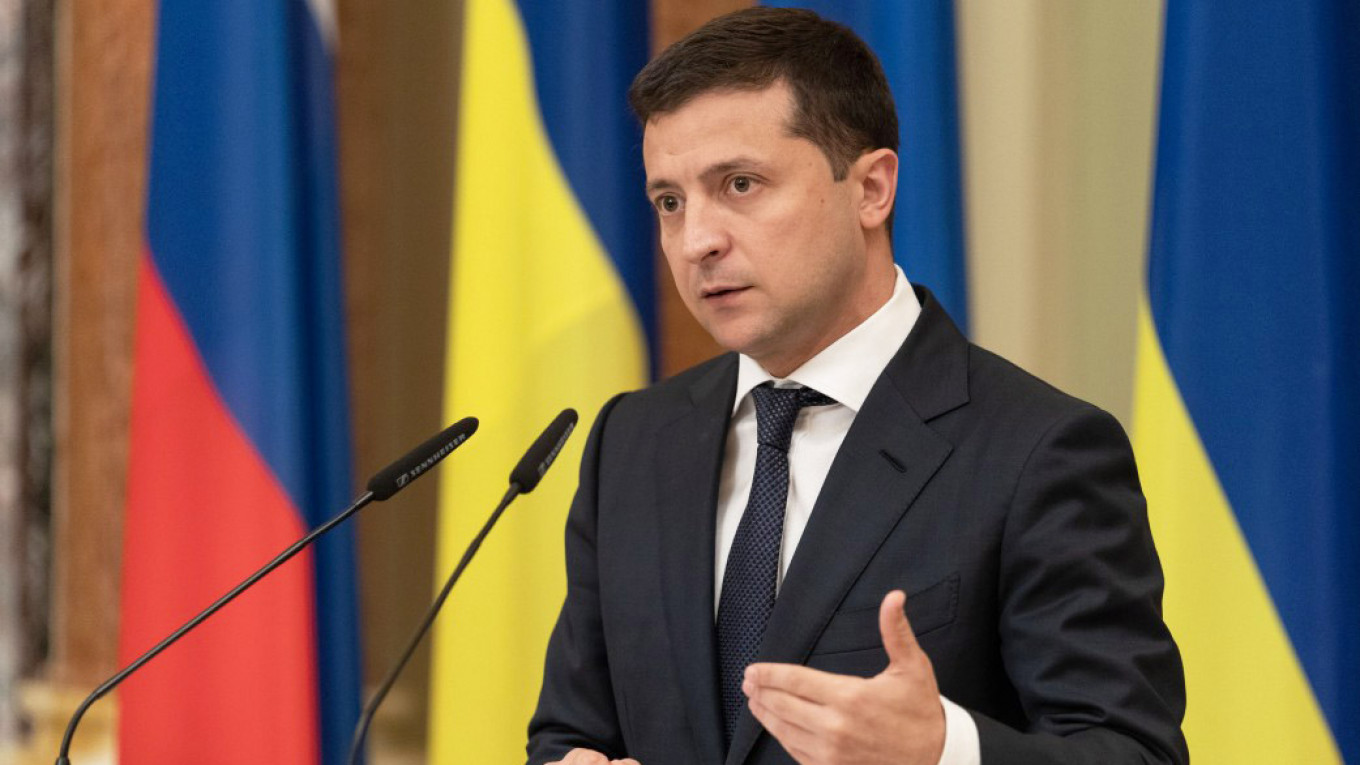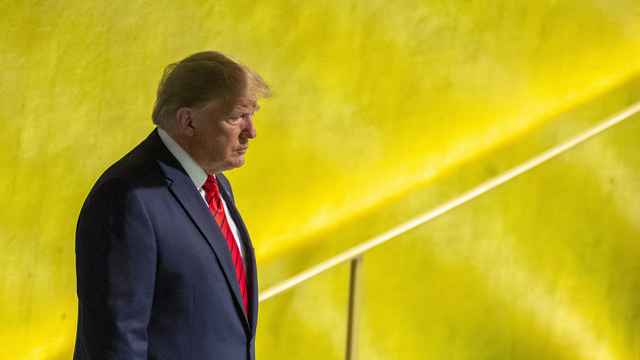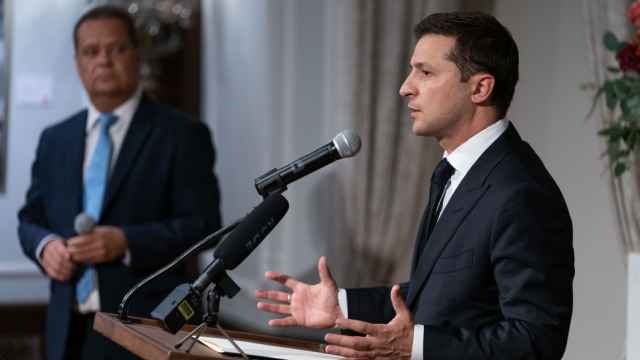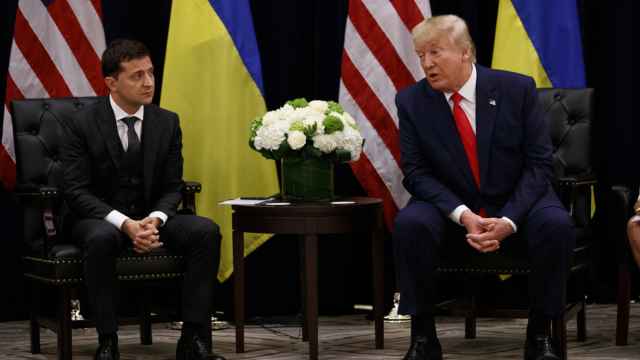A phone call between U.S. President Donald Trump and Ukrainian leader Volodymyr Zelenskiy has become a political flashpoint in Washington following reports that Trump asked Zelenskiy to investigate Democratic presidential hopeful Joe Biden and his son.
The July 25 call has wide-ranging implications for Russia’s western neighbor Ukraine, which depends heavily on U.S. aid for combating corruption and for its military operations against pro-Russian rebels in its eastern regions. For Zelenskiy in particular, the call — and how he chooses to proceed next — risk leaving a blotch on his short political career.
The scandal broke out as Zelenskiy was scheduled to land in New York for the UN General Assembly and for talks with Trump on Wednesday.
Here’s a look at what we know so far:
What happened?
— Multiple news organizations reported on Friday that Trump repeatedly asked Zelenskiy to investigate whether Biden misused his position as vice president to threaten to withhold U.S. aid unless a prosecutor who was looking into a gas company in which Biden's son was involved was fired. A transcript of the phone call has not been released.
— Trump told reporters at the White House that their phone conversation was mostly congratulatory but also touched on corruption and the Bidens.
— House of Representatives Speaker Nancy Pelosi on Tuesday announced that the Democratic-led House was moving forward with an official impeachment inquiry and directed six committees to proceed with investigations of Trump's actions.
— The White House released a summary of the call Wednesday afternoon which shows Trump asking Zelenskiy to open an investigation into Biden. Zelenskiy responds by saying he will ask Ukraine's new prosecutor general to "look into" the situation.
What is at stake for Ukraine?
— If Zelenskiy decides to investigate Biden and his son, he could risk being seen by Democrats as meddling in the 2020 U.S. presidential election to give Republicans an advantage, analysts say.
— However, choosing not to open a probe risks angering Trump, who has for the past several years spoken candidly about reconciling with Russia and been lukewarm on Ukraine.
— The call occurred after Trump had ordered the U.S. government to freeze nearly $400 million in American aid to Ukraine. The move fueled speculation among Democratic lawmakers that Trump was attempting to use military aid as leverage “to coerce” Kiev to investigate Biden.
What has Ukraine said?
— Andriy Yermak, an aide to Zelenskiy, was quoted in Ukrainian media outlet lb.ua as saying that he had told Trump's lawyer Rudolph Giuliani that any investigation would be transparent.
"We can guarantee that during our term in office all investigations will be carried out transparently," Yermak said. "These are the fundamental principles and basis of President Zelenskiy's program which we campaigned on."
— Ukrainian Foreign Minister Vadym Prystaiko on Saturday denied suggestions that Trump had put pressure on Zelenskiy during the phone call.
What has Russia said?
— “It turns out it’s Zelenskiy — and not Russia or [President Vladimir] Putin — who’s interfering in the American elections,” said Yevgeny Popov, the co-host of a pro-Kremlin talk show on Russian state television.
— Co-host Olga Skabeyeva gloated that the scandal marred Zelenskiy’s first face-to-face with Trump and linked their phone call to U.S. military aid to Ukraine, which Trump briefly held up.
— “The bipartisan American consensus on Ukraine, which Kiev has always been so proud of, is more dead than alive,” Russian International Affairs Council expert Alexander Gushchin told the Kommersant business daily Monday.
Reuters contributed reporting to this article.
A Message from The Moscow Times:
Dear readers,
We are facing unprecedented challenges. Russia's Prosecutor General's Office has designated The Moscow Times as an "undesirable" organization, criminalizing our work and putting our staff at risk of prosecution. This follows our earlier unjust labeling as a "foreign agent."
These actions are direct attempts to silence independent journalism in Russia. The authorities claim our work "discredits the decisions of the Russian leadership." We see things differently: we strive to provide accurate, unbiased reporting on Russia.
We, the journalists of The Moscow Times, refuse to be silenced. But to continue our work, we need your help.
Your support, no matter how small, makes a world of difference. If you can, please support us monthly starting from just $2. It's quick to set up, and every contribution makes a significant impact.
By supporting The Moscow Times, you're defending open, independent journalism in the face of repression. Thank you for standing with us.
Remind me later.






